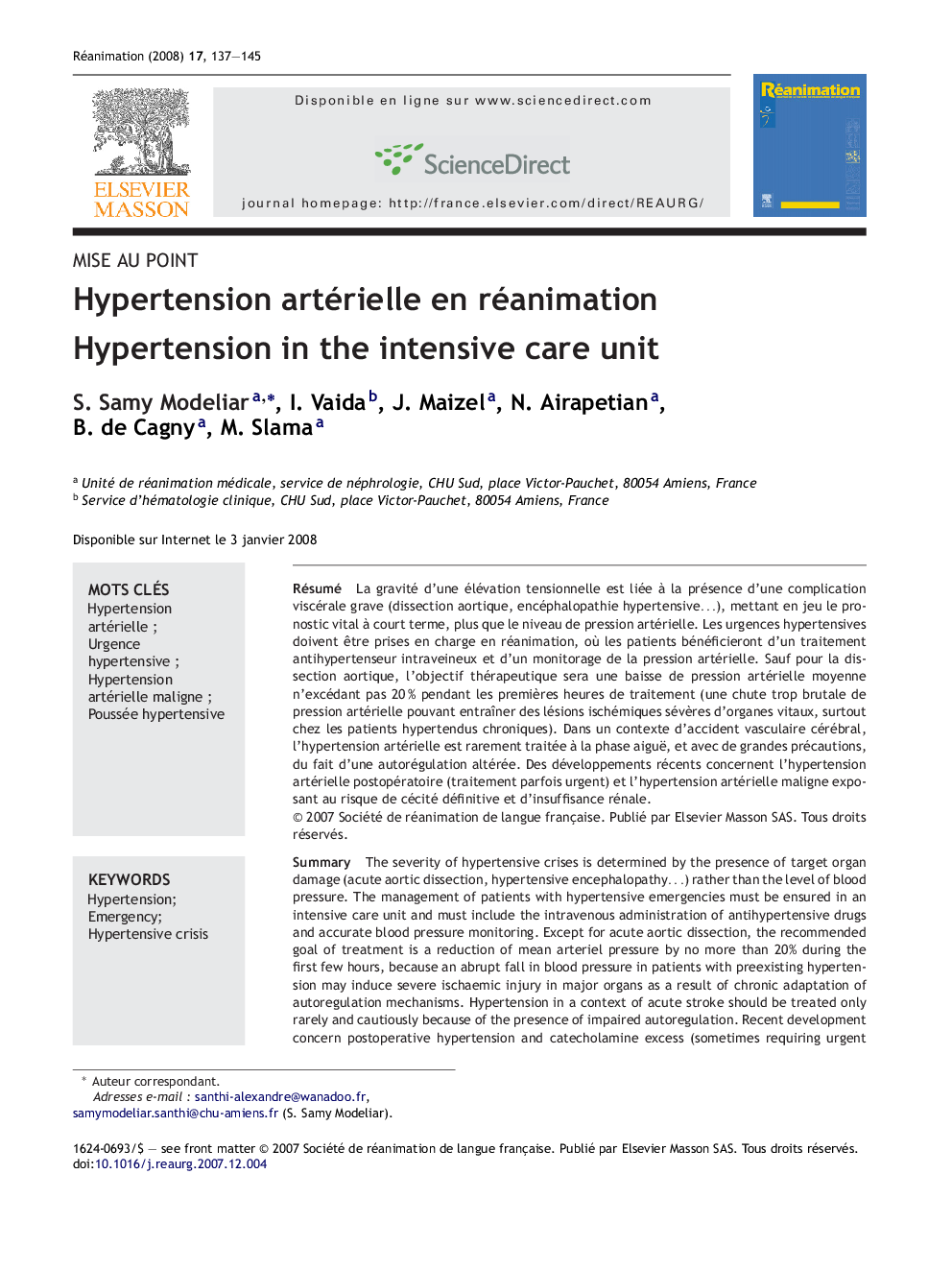| Article ID | Journal | Published Year | Pages | File Type |
|---|---|---|---|---|
| 2613020 | Réanimation | 2008 | 9 Pages |
Abstract
The severity of hypertensive crises is determined by the presence of target organ damage (acute aortic dissection, hypertensive encephalopathyâ¦) rather than the level of blood pressure. The management of patients with hypertensive emergencies must be ensured in an intensive care unit and must include the intravenous administration of antihypertensive drugs and accurate blood pressure monitoring. Except for acute aortic dissection, the recommended goal of treatment is a reduction of mean arteriel pressure by no more than 20% during the first few hours, because an abrupt fall in blood pressure in patients with preexisting hypertension may induce severe ischaemic injury in major organs as a result of chronic adaptation of autoregulation mechanisms. Hypertension in a context of acute stroke should be treated only rarely and cautiously because of the presence of impaired autoregulation. Recent development concern postoperative hypertension and catecholamine excess (sometimes requiring urgent treatment). Also, malignant hypertension demands special consideration because of risks of permanent blindness and renal failure.
Related Topics
Health Sciences
Medicine and Dentistry
Emergency Medicine
Authors
S. Samy Modeliar, I. Vaida, J. Maizel, N. Airapetian, B. de Cagny, M. Slama,
